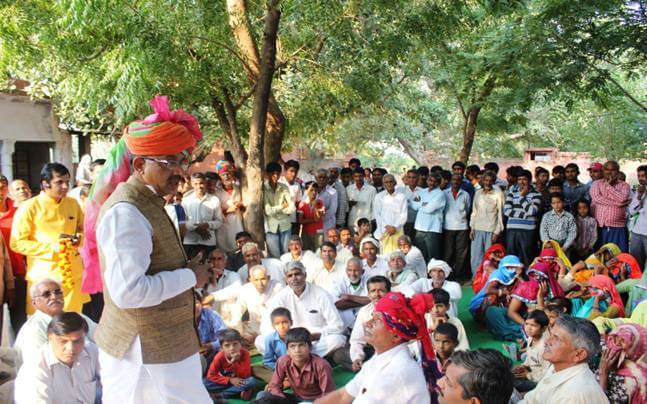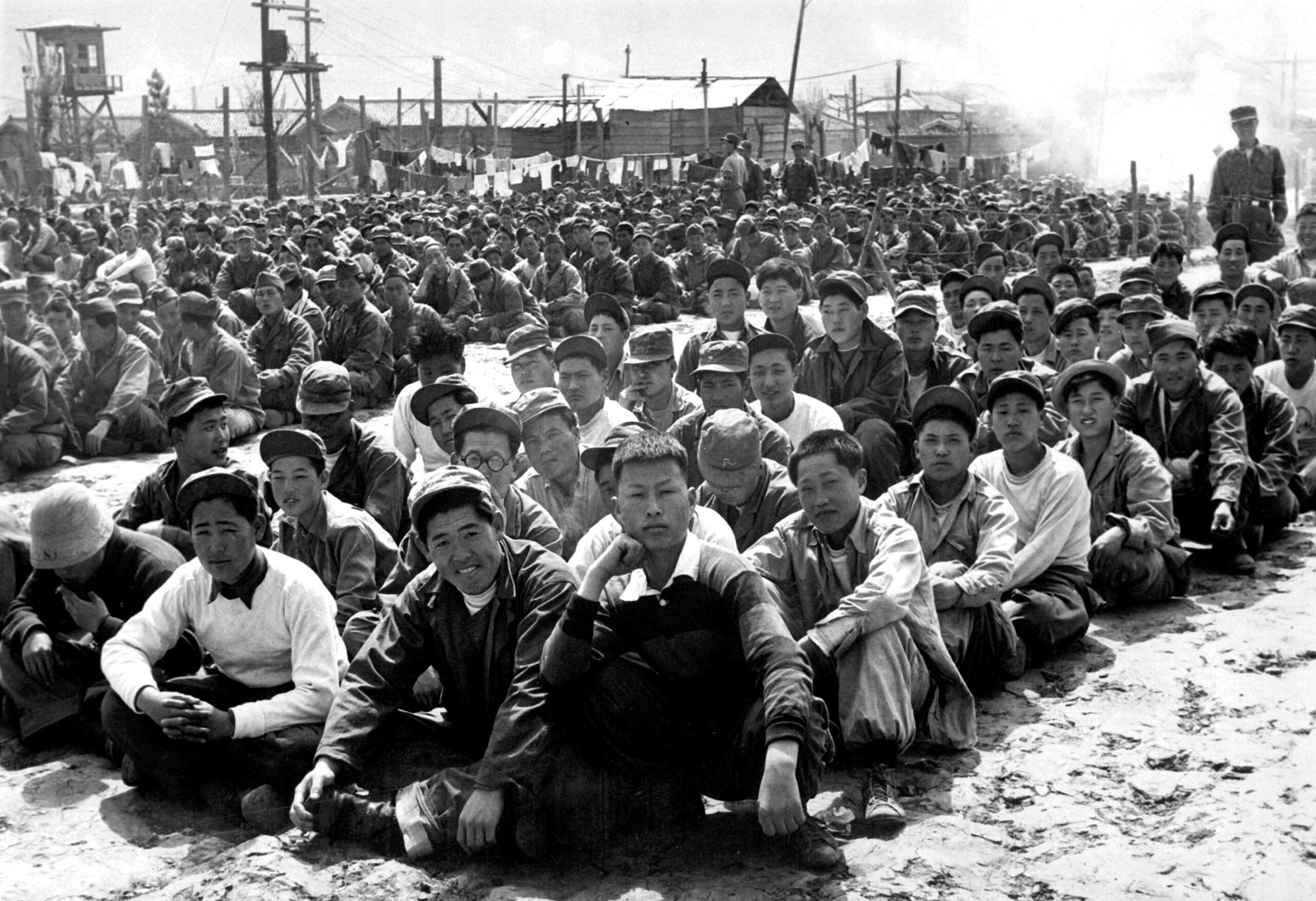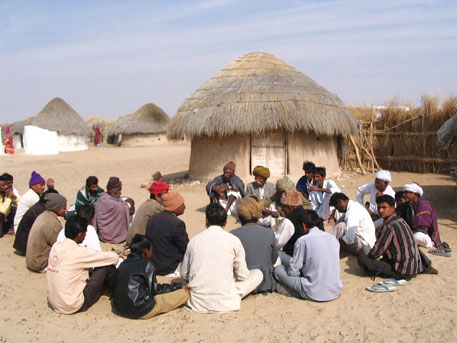This Blog is written by Tanvi Sanjay Rane from Dr. D.Y. Patil College of Law, Maharashtra. Edited by Ravikiran Shukre.
Crime is an inevitable and universal phenomenon that forms an integral part of every human society. Truly speaking, it is impossible to find a society free from the problems of crime and criminals. The existence of criminality provided it does not exceed, for each social type, a certain level is regarded as a normal though regrettable phenomenon. But when crime…
This Blog is written by Saptaswara Chakraborty from North Eastern Hill University, Meghalaya. Edited by Ravikiran Shukre.
International law as the name suggests is the law that is applied in the relations of the States and their subjects under international law. The subject matter of an international convention or for that matter a treaty, not only holds itself being of prime importance for the two parties engaged in the treaty but also sets a precedent for future agreements to come. Similarly…
Controversies Surrounding Legislation On Organ Retention: How Can the Existing Problems Be Regulated
This Blog is written by Divya Bhargava from Indore Institute of Law, Madhya Pradesh. Edited by Ravikiran Shukre.
Before discussing the concept of exiting problems and legislation, we need to understand the meaning of ‘organ retention’ it is a procedure where the organs from the body are remove from the particular period for the proper diagnosis and retained. The procedure of organ retention can be used in both positive and negative way. But here, the most important…
This Blog is written by Anindo Chatterjee from Amity Law School, Noida. Edited by Prakriti Dadsena.
The Indian Penal Code 1860 (hereinafter referred to as IPC), is one of the most complex arrangement of laws in the globe. With the challenges it faced of providing adequate punishments for the wrongdoings, issues also arose regarding the jurisdiction. This law aims to answer some tricky, probing questions like, what should be the outcome with foreign…
This Blog is written by Soumya Bhardwaj from Bennett University, Greater Noida. Edited by Ujjawal Vaibhav Agrahari.
Local bodies such as panchayats, for the most part, served as civic agents of the state government rather than micro-level planning instruments in the early years. Rural development initiatives were developed and attempt to establish a three-tier Panchayat structure were made during the third five-year plan. But, except for a few states, it was not a success. Many…
This Blog is written by Soumya Bhardwaj from Bennett University, Greater Noida. Edited by Prakriti Dadsena.
The COVID-19 pandemic is our generation’s greatest global health crisis, as well as the world’s largest humanitarian issue since World War II. As countries seek to limit the virus’s spread, the number of cases continues to rise. When you look at the history of second waves, you’ll notice that they’ve always been more aggressive and larger in size than the first. This time…
This Blog is written by Vijayalakshmi Raju from Dr. Ambedkar Global Law Institute, Tirupati. Edited by Prakriti Dadsena.
Legalization may have a short-term negative impact on Latin America by expanding criminal activities such as extortion, robbery, and abduction while having an ambiguous impact on violence reduction. Without a doubt, legalizing narcotics would drive criminals out of the drug trade. There is no wrongdoing if there is no benefit. However, the repercussions of…
This Blog is written by Zeeshan Husain from Indore H.R.K. Law College, Pilibhit. Edited by Prakriti Dadsena.
Under the Indian legal system, properties are divided into two categories – movable and immovable. The Transfer of Property Act (TOPA), 1882, which came into force on July 1, 1882, deals with the aspects of the transfer of properties between living beings. One of the oldest laws in the Indian legal system, the TOPA is an extension of the law of contracts…
This Blog is written by Khushi Gupta from Vivekananda Institute of Professional Studies, New Delhi. Edited by Prakriti Dadsena.
The wants, ambitions, and requirements of its inhabitants, rather than the implementation of development plans, zoning rules, and bye laws, determine the growth of every urban community. The social, economic, political, and technical dynamics of urban settlements are always changing. Any development plan’s success is determined by the number of…
This Blog is written by Himanshi Sharma from Delhi Metropolitan Education, GGSIPU, Noida. Edited by Prakriti Dadsena.
Rahul and Siya were together in college. They married after graduation and three years later had a beautiful baby boy, Rahul Jr. Six years later, the romance ended and Siya filed for divorce from Rahul. After the divorce became final, Rahul began paying alimony and child support to Siya, who had full custody of Rahul Jr. During his weekend visits to his son…
This Blog is written by Ruthika Reddy from St. Francis College for Women, Hyderabad. Edited by Prakriti Dadsena.
Marriage is an important social institution and the exchange of expensive gifts is a very old custom. This deep-rooted tradition of dowry in India has claimed the lives of many women. Dowry is the payment in cash or any other assets of monetary value by the bride’s family to the groom’s family. It is linked to the social structure of marriage. This practice is…
This Blog is written by Bhavya from NALSAR University of Law, Hyderabad. Edited by Prakriti Dadsena.
A concept deep-rooted in the historical maxim of “Nemo Moriturus Praesumitur Mentire”. A dying declaration connotes evidence carved by a man “who will not meet his maker with a lie in his mouth”- a person on the deathbed, who cannot be presumed to lie. Codified under the Indian Evidence Act as well…
This Blog is written by Himanshi Sharma from Delhi Metropolitan Education, GGSIPU, Noida. Edited by Ujjawal Vaibhav Agrahari.
The Punjab Courts Act has received the assent of the: Lieutenant- Governor of Punjab on 30th May 1918, Governor-General on 12th June 1918 and was first published in the Punjab Gazette on 12th July 1918. It is an act to validate all things done under the Punjab Courts Act, 1914 as amended by Punjab Act IV of 1914, to repeal the said acts or as so much of them as…
This Blog is written by Divya Bhargava from Indore Institute of Law, Madhya Pradesh. Edited by Ujjawal Vaibhav Agrahari.
The meaning of “Regulation of Letting” means “to rent another person his/her accommodation”. For purpose of renting properties to other people, there should be a rent agreement (for legal verification) between two persons. In simple terms, a rent agreement is a legal document which is also known as a contract(proposal and acceptance from both sides of the…
This Blog is written by Shaurya Nagpal from Bennett University, Greater Noida. Edited by Prakriti Dadsena.
Land consolidation is the process of readjusting and rearranging fragmented land parcels and ownership so as to form larger and judicious land holdings through proper planning. From an economic growth perspective, land reforms are considered to be the most crucial in bringing about agricultural improvements. A crucial aim of land consolidation has…
This Blog is written by Surbhi Pareek from NALSAR University of Law, Hyderabad. Edited by Prakriti Dadsena.
Gambling has already been a part of Indian society since ancient times, despite the fact that it is deemed immoral. According to various legal frameworks in India, ‘gambling’ is considered to be “the act of wagering or betting” for money or money’s worth. Some activities related to gambling are legal in India and are termed to be social gaming, only when there…
This Blog is written by Bhavya from NALSAR University of Law, Hyderabad. Edited by Prakriti Dadsena.
The Information Technology (Intermediary Guidelines and Digital Media Ethics Code) Rules, 2021, passed as a notification by the Ministry of Electronics and Information Technology[1] came into the public domain on 25th February 2021. Superseding the Information Technology (Intermediaries Guidelines) Rules, 2011, and in the exercise of the IT Act of 2000, these rules lay…
This Blog is written by Anusuya Ghosh from KIIT School of Law, Odisha. Edited by Prakriti Dadsena.
The Act specifies the mechanism for collecting land revenue, as well as the revenue officers who will have the ability to impose and collect land revenue, and the definition of an agriculture tenure for the purposes of computing revenue assessment periods. The act’s purpose is to consolidate a person’s or Bhoomiswami’s rights and responsibilities in relation…
This Blog is written by Andre Sachdeva from Vivekananda School of Law and Legal Studies, VIPS, New Delhi. Edited by Prakriti Dadsena.
Rent is the price or amount stipulated in the lease or tenancy agreement to be paid by the tenant to the landlord in exchange for exclusive ownership of the leased property for the term of the lease. Thus, in order to regulate rent in Maharashtra, the state government introduced the Maharashtra Rent Control Bill, 1999, which resulted in the Maharashtra…
This Blog is written by Vijayalakshmi Raju from Dr. Ambedkar Global Law Institute, Tirupati. Edited by Ravikiran Shukre.
The first major agrarian reform after independence was the obligation of the Zamindari System. Even before the adoption of the Indian Constitution, Zamindari’s abolition measures had begun. The Zamindari Abolition Committee was launched by many syndicate provinces, including the Central Provinces, United Provinces, Bihar, Assam, Madras, and Bombay. The…
This Blog is written by Anvaya Singh from Amity Law School, Noida. Edited by Ravikiran Shukre.
The Government of India enacted the Delhi Rent Control Act in 1958 with the intention to safeguard the migrants who are staying on rent in Delhi in particular. Also, each state has its own rent control act as just one that governed the whole country during those times would have proved to be unsuitable in many regions and areas because every state has its own customs…
This Blog is written by Divya Bhargava from Indore Institute of Law, Madhya Pradesh. Edited by Ravikiran Shukre.
India is a place where all types of weather, forest, and different living conditions exist. The diversity of Indian weather is unique. It is land consisting of 10% of the world’s species. India is a place where all the rare and unique animals exist. According to the International Conservation of Nature, India is a megadiverse country with only 2.4% of the world’s large area…
This Blog is written by Vijayalakshmi Raju from Dr.Ambedkar Global Law Institute, Tirupati. Edited by Ravikiran Shukre.
The Lok Sabha approved The Specific Relief (Amendment) Bill, 2018 in mid-March 2018 by voice vote without debate, amending an existing Act, The Specific Relief Act 1953, that has not been altered since its commencement. This bill sought to give a contractual party the ability to seek damages from the other party in the event of a commercial contract violation…
This Blog is written by Soujanya Boxy from National Law University, Odisha. Edited by Ujjawal Vaibhav Agrahari.
A patent is an individual’s monopoly right to safeguard any new or upgrade of an existing product or a new process for a limited period. The government considers the applicant’s disclosure of the invention and grants a patent as an exclusive right for a limited duration. This exclusive right is enjoyed by the patentee for preventing the third party from performing…
This Blog is written by Anindo Chatterjee from Amity Law School, Noida. Edited by Prakriti Dadsena.
Rent Control Acts are common throughout the country that is India. The primary reason for this is the impending threat of exploitation by the landlords which it’s been a thorn in the flesh for the authorities in addition to the tribunal. Without any regulation landlords might go on a rampage and exploit the life out of the tenants, other issue is tenants exploiting their…
This Blog is written by Anish Bachchan from Amity Law School, Noida. Edited by Ravikiran Shukre.
March 22nd, 2020, when our prime minister declared a nationwide lockdown all over India. In just a matter of few days, our daily lives have changed. With it, we started to live the new reality. A reality, we once thought could never happen but it did anyway. I’m talking about the stay-at-home procedure.
This Blog is written by Surbhi Pareek from NALSAR University of Law, Hyderabad. Edited by Ravikiran Shukre.
Equity may be generally understood as the state of being fair and just. Though in the legal sphere, jurists and scholars have come forward with varied definitions of equity, its origin and evolution are profoundly entwined with the history of the common law. It is often described as ‘a separate arm of law which evolved alongside common law and is concerned with fairness and justice.
This Blog is written by Anusuya Ghosh from KIIT School of Law, Odisha. Edited by Ravikiran Shukre.
Order 23 of Civil Procedure Code, 1908 arrangements with withdrawal opposite announces the impacts of withdrawal. It implies the deserting of part of a case in a suit and bargain of suits i.e., changes of the suit. Division of Withdrawal of suit is into two viz., a) Absolute withdrawal and b) qualified withdrawal.
This Blog is written by Tanvi Sanjay Rane from Dr. D.Y. Patil College of Law, Maharashtra. Edited by Ujjawal Vaibhav Agrahari.
Since time immemorial, the military has played a vital role in shaping history and securing the future of the world. Early men lived in tribes that consisted of gatherers, hunters, and protectors. According to the Upanishadic interpretation of the law, the function of law is to ensure the social security of men and the existing social institutions.
This Blog is written by Akshara Lagisetty from Amity University, Mumbai. Edited by Prakriti Dadsena.
The Panchayati Raj Institution system is the Rural Local Self Government in India. In the urban areas, the administration of the government is easier to function as all the functionaries are available and dispose of the issues in a timely manner, whereas in the rural areas where the administrative functionaries are difficult to reach and their issues go unnoticed or cannot be easily addressed.
This Blog is written by Ojaswi Gupta from NEF Law College, Guwahati. Edited by Ravikiran Shukre.
India became free in 1947 and our Constitution was adopted in 1950. They gave the Prevention of Detention laws a name of sanctity in the Chapter of Fundamental Rights. There are certain parts, areas in our Constitution that are not our rights but are a danger to the people.
This Blog is written by Jhimli Ojha from KIIT School of Law, Odisha. Edited by Ravikiran Shukre.
A cryptocurrency is a virtual form of currency. It is a medium of exchange for goods and assets. All the transactions take place online and there isn’t any presence of physical notes or coins. Cryptocurrencies are used for different purposes like trading, making transactions, and investment.
This Blog is written by Illa Mathi Maran from UPES, Dehradun. Edited by Ravikirna Shukre.
In this ongoing pandemic situation, various countries implemented lockdowns and proposed various restrictions among the people. If we list out the familiar leisure time activity of most people will be listed under the category of cinephiles.
This Blog is written by Jhimli Ojha from KIIT School of Law, Odisha. Edited by Ravikiran Shukre.
Cross border mergers and acquisitions have grown at a massive rate due to globalization. The corporate sector all over the world is redefining itself with cross-border mergers and acquisitions.
This Blog is written by Palak Bhawsinka from National Law University, Odisha. Edited by Sonali Priyadarsini.
In India, the cultural heritage and antique monuments in the form of buildings and other archeological sites and remains are exceptional, vast, and diverse. Astonishing is the sheer number of these historical legacies. These historic sites, in the eyes of the Indians, reminiscent of the living witnesses of the golden historical age of more than a thousand years and the pre-independence wars.
This Blog is written by Sagun Modi from National Law University, Odisha. Edited by Sonali Priyadarsani.
During ancient times and the early 20th century, there often used to occur wars and armed conflicts between two or more enemy states. In fact, World War I and World War II were the deadliest wars that occurred in the history of humanity. During these wars, the armed forces of both parties used to fight against each other to protect their respective nation-states.
This Blog is written by Illa Mathi Maran from UPES, Dehradun. Edited by Ravikirna Shukre.
The act of drugs and cosmetics is the act which was made in 1940, the pre-independent era. The act of drugs and cosmetic’s played a major role in the pharmaceutical department. This act was mostly on a part of check and balance in the area of pharmacy.
This Blog is written by Illa Mathi Maran from UPES, Dehradun. Edited by Ravikirna Shukre.
The term technology has its wide meaning. We should understand the origin and the development of technology. The term technology is defined from a Greek term, techne- mean “ART, SKILL, THE CUNNING OF HAND” and logia – “collection and arrangement of machinery and tools”.
This Blog is written by Ayushee Priya from KIIT School of Law, Odisha. Edited by Ravikirna Shukre.
Judiciary is the most trusted institution in India. Indian Judiciary is one of the oldest legal systems all over the world. India has borrowed many features of the Constitution from many countries like British, Ireland, the United States of America, Canada, Australia, Russia, France, Germany, South Africa, and Japan.
This Blog is written by Ayushee Priya from KIIT School of Law, Odisha. Edited by Ravikirna Shukre.
In our society, there are individuals and groups who have a different mindset to deal with a particular kind of situation. So, there are chances of disputes between the individuals or the groups or the individuals and the groups. Disputes must be settled otherwise there would irregularity, disturbance, and disorganization.








































